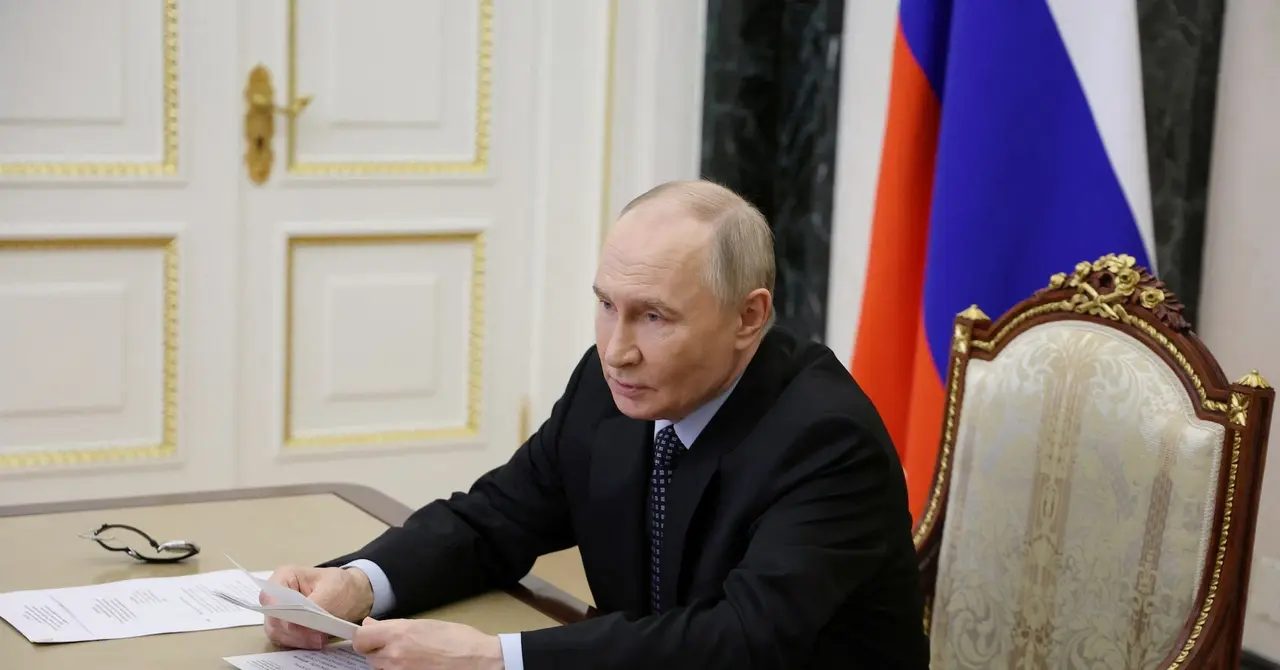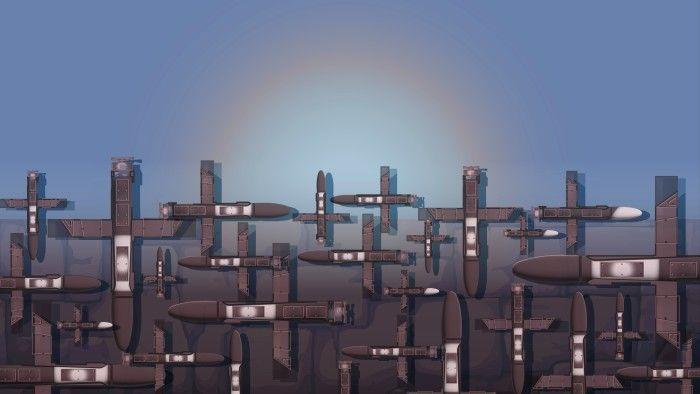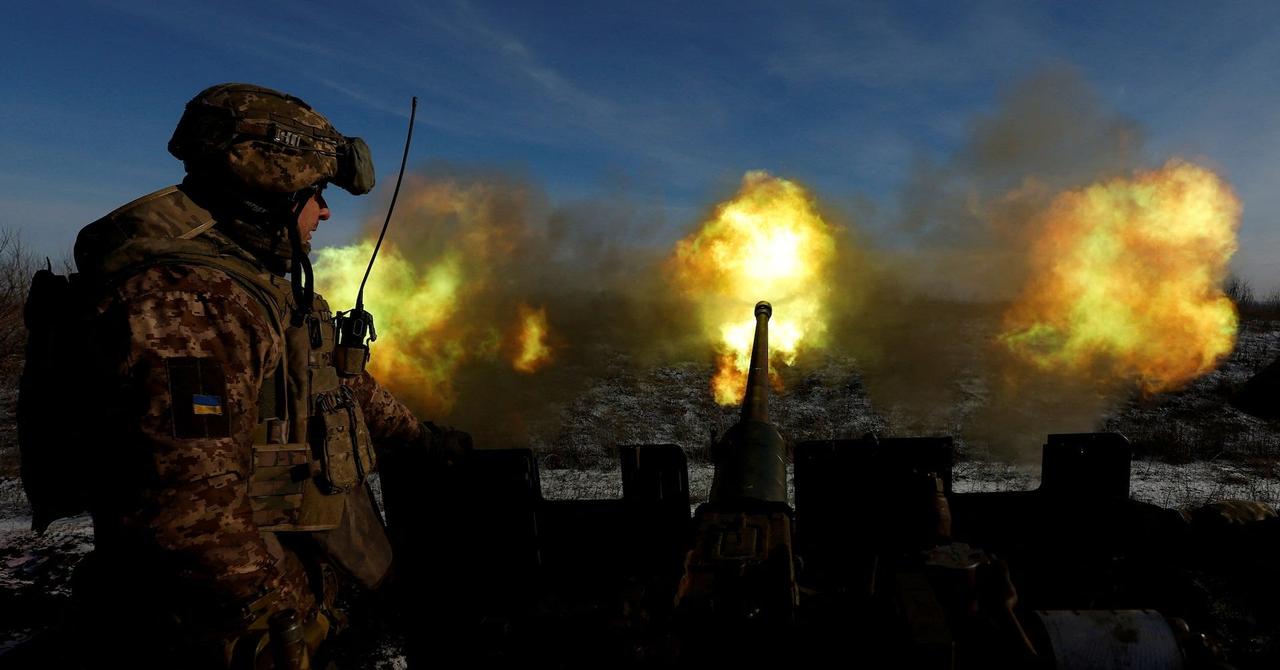Putin Calls for Boost in Russian Arms Exports, Emphasizes AI Weapons
3 Sources
3 Sources
[1]
Putin says he wants boost to Russian arms exports
MOSCOW, May 23 (Reuters) - President Vladimir Putin said on Friday that Russia needs to strengthen its position in the global arms market by increasing exports of weapons. In televised remarks, he also said the country's military complex needs more state support to develop its potential. Since Moscow sent thousands of troops into Ukraine in February 2022, the defence industry has been largely focused on domestic military production to support operations there. It has entailed a massive effort to build new missiles, drones and shells as well as recondition ageing Soviet-era tanks, vehicles and artillery. According to the Stockholm International Peace Research Institute (SIPRI), Russian arms exports dropped to 7.8% of the global market in the 2020-24 period, compared with 21% in the previous four-year period, as a result of international sanctions over the conflict in Ukraine and increased domestic demand for weapons. India, China and Egypt are among the biggest buyers of Russian arms. "The portfolio of orders for Russian military products is now serious. It is tens of billions of dollars. And it is necessary to actively increase the volume of export deliveries," Putin said. He also singled out weapons that utilise Artificial Intelligence (AI). "The future of the global arms market lies with such technology. Strong competition will unfold here, and is already unfolding, for which we must be prepared," Putin said. Western and Ukrainian officials acknowledge the Kremlin has done better than anyone expected when it comes to the battle to produce military equipment, but it has been hindered by increasingly stringent Western sanctions covering a growing number of industrial and other components. Last month, Putin acknowledged that Russia's armed forces remained short of certain weapons, including drones, despite a big increase in output. Reporting by Vladimir Soldatkin, Dmitry Antonov and Maxim Rodionov; editing by William Maclean and Mark Heinrich Our Standards: The Thomson Reuters Trust Principles., opens new tab Suggested Topics:Aerospace & Defense
[2]
Putin Says He Wants Boost to Russian Arms Exports
MOSCOW (Reuters) -President Vladimir Putin said on Friday that Russia needs to strengthen its position in the global arms market by increasing exports of weapons. In televised remarks, he also said the country's military complex needs more state support to develop its potential. Since Moscow sent thousands of troops into Ukraine in February 2022, the defence industry has been largely focused on domestic military production to support operations there. It has entailed a massive effort to build new missiles, drones and shells as well as recondition ageing Soviet-era tanks, vehicles and artillery. According to the Stockholm International Peace Research Institute (SIPRI), Russian arms exports dropped to 7.8% of the global market in the 2020-24 period, compared with 21% in the previous four-year period, as a result of international sanctions over the conflict in Ukraine and increased domestic demand for weapons. India, China and Egypt are among the biggest buyers of Russian arms. "The portfolio of orders for Russian military products is now serious. It is tens of billions of dollars. And it is necessary to actively increase the volume of export deliveries," Putin said. He also singled out weapons that utilise Artificial Intelligence (AI). "The future of the global arms market lies with such technology. Strong competition will unfold here, and is already unfolding, for which we must be prepared," Putin said. Western and Ukrainian officials acknowledge the Kremlin has done better than anyone expected when it comes to the battle to produce military equipment, but it has been hindered by increasingly stringent Western sanctions covering a growing number of industrial and other components. Last month, Putin acknowledged that Russia's armed forces remained short of certain weapons, including drones, despite a big increase in output. (Reporting by Vladimir Soldatkin, Dmitry Antonov and Maxim Rodionov; editing by William Maclean and Mark Heinrich)
[3]
Putin says he wants boost to Russian arms exports
MOSCOW (Reuters) -President Vladimir Putin said on Friday that Russia needs to strengthen its position in the global arms market by increasing exports of weapons. In televised remarks, he also said the country's military complex needs more state support to develop its potential. Since Moscow sent thousands of troops into Ukraine in February 2022, the defence industry has been largely focused on domestic military production to support operations there. It has entailed a massive effort to build new missiles, drones and shells as well as recondition ageing Soviet-era tanks, vehicles and artillery. According to the Stockholm International Peace Research Institute (SIPRI), Russian arms exports dropped to 7.8% of the global market in the 2020-24 period, compared with 21% in the previous four-year period, as a result of international sanctions over the conflict in Ukraine and increased domestic demand for weapons. India, China and Egypt are among the biggest buyers of Russian arms. "The portfolio of orders for Russian military products is now serious. It is tens of billions of dollars. And it is necessary to actively increase the volume of export deliveries," Putin said. He also singled out weapons that utilise Artificial Intelligence (AI). "The future of the global arms market lies with such technology. Strong competition will unfold here, and is already unfolding, for which we must be prepared," Putin said. Western and Ukrainian officials acknowledge the Kremlin has done better than anyone expected when it comes to the battle to produce military equipment, but it has been hindered by increasingly stringent Western sanctions covering a growing number of industrial and other components. Last month, Putin acknowledged that Russia's armed forces remained short of certain weapons, including drones, despite a big increase in output. (Reporting by Vladimir Soldatkin, Dmitry Antonov and Maxim Rodionov; editing by William Maclean and Mark Heinrich)
Share
Share
Copy Link
Russian President Vladimir Putin urges an increase in arms exports and highlights the importance of AI-powered weapons in the global arms market, despite facing challenges from Western sanctions and domestic demand.
Putin's Call for Increased Arms Exports
Russian President Vladimir Putin has called for a significant boost in the country's arms exports, emphasizing the need to strengthen Russia's position in the global arms market. In a televised address, Putin stressed the importance of increasing export deliveries, noting that the current portfolio of orders for Russian military products is "serious" and amounts to "tens of billions of dollars"
1
.
Source: Reuters
Focus on AI-Powered Weapons
A notable aspect of Putin's statement was his emphasis on weapons utilizing Artificial Intelligence (AI). The Russian leader identified AI-powered armaments as the future of the global arms market, stating, "The future of the global arms market lies with such technology. Strong competition will unfold here, and is already unfolding, for which we must be prepared"
2
. This focus on AI in weaponry signals Russia's intent to compete in advanced military technology sectors.Challenges in the Arms Export Sector
Despite Putin's ambitious goals, Russia's arms export sector faces significant challenges. According to the Stockholm International Peace Research Institute (SIPRI), Russian arms exports have seen a substantial decline, dropping to 7.8% of the global market in the 2020-24 period, compared to 21% in the previous four-year period
3
. This decline is attributed to international sanctions imposed due to the conflict in Ukraine and increased domestic demand for weapons.Impact of Ukraine Conflict on Arms Production
The ongoing conflict in Ukraine has significantly impacted Russia's defense industry. Since February 2022, when Moscow deployed troops to Ukraine, the country's military-industrial complex has primarily focused on domestic production to support operations in Ukraine. This shift has necessitated a massive effort to manufacture new missiles, drones, and shells, as well as refurbish aging Soviet-era military equipment
1
.Related Stories
Western Sanctions and Production Challenges
While Western and Ukrainian officials acknowledge that the Kremlin has performed better than expected in military equipment production, Russia faces significant hurdles due to increasingly stringent Western sanctions. These sanctions cover a growing number of industrial and other components crucial for arms manufacturing
2
. Last month, Putin himself admitted that Russia's armed forces were still short of certain weapons, including drones, despite a substantial increase in output.Major Buyers and Future Prospects
Despite the challenges, Russia maintains a significant presence in the global arms market. India, China, and Egypt are among the biggest buyers of Russian arms
3
. Putin's call for increased exports and focus on AI-powered weapons suggests that Russia is looking to diversify and modernize its offerings to maintain its position in the face of increasing competition and sanctions.References
Summarized by
Navi
[2]
[3]
Related Stories
Putin Orders Russia-China Collaboration on AI Development
01 Jan 2025•Technology

Ukraine's Defense Industry Revolutionizes Warfare with AI and Robotics Amid Ongoing Conflict
18 Nov 2024•Technology

Ukraine's Military Tech Innovation: Reshaping Modern Warfare and Global Defense Dynamics
19 Sept 2025•Technology

Recent Highlights
1
ByteDance's Seedance 2.0 AI video generator triggers copyright infringement battle with Hollywood
Policy and Regulation

2
Demis Hassabis predicts AGI in 5-8 years, sees new golden era transforming medicine and science
Technology

3
Nvidia and Meta forge massive chip deal as computing power demands reshape AI infrastructure
Technology





